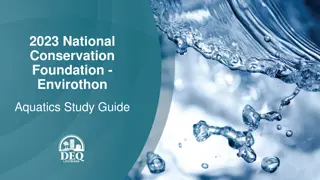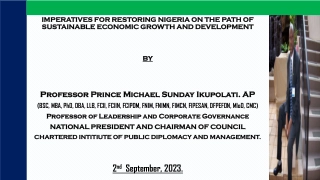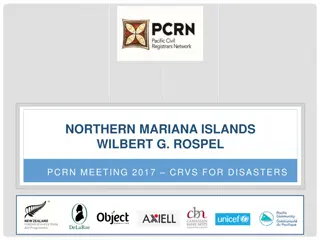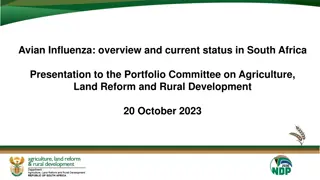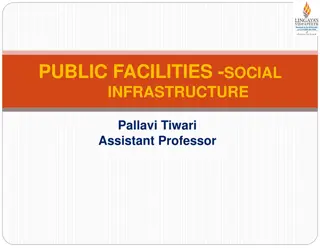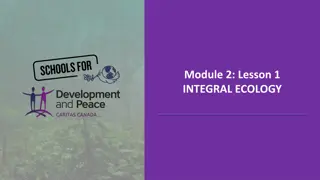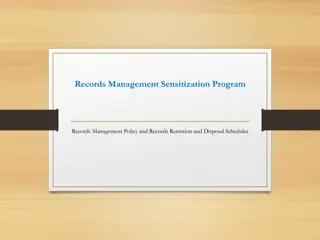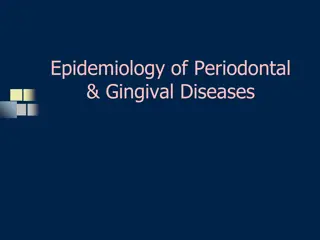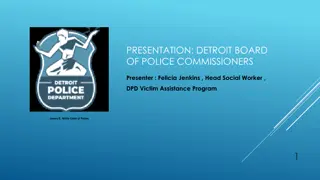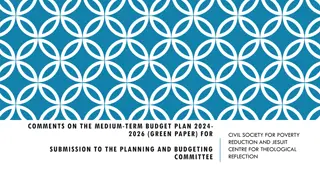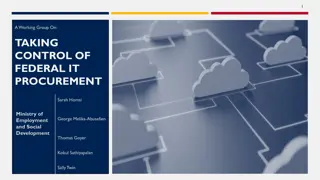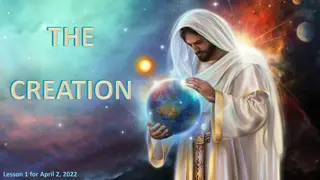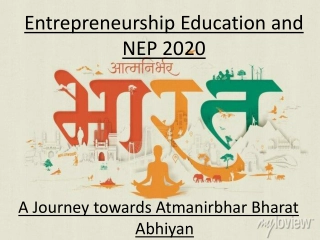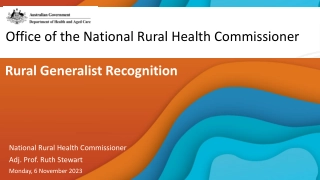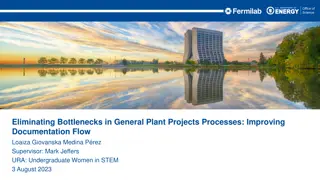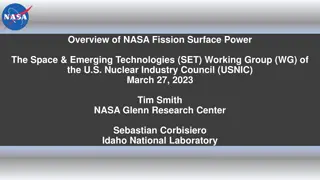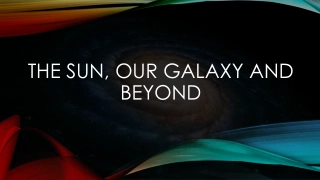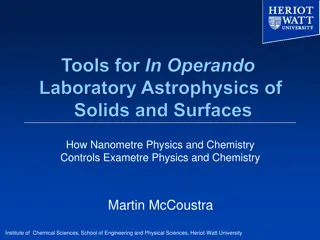Restoring Wetlands: Vital for Our Future
Learn about the importance of wetlands, the urgency of restoration, and best practices for the preservation of these critical ecosystems. Discover how wetlands support biodiversity, provide essential services to humanity, and can be restored through community involvement and sustainable practices.
Download Presentation
Please find below an Image/Link to download the presentation.
The content on the website is provided AS IS for your information and personal use only. It may not be sold, licensed, or shared on other websites without obtaining consent from the author. Download presentation by click this link. If you encounter any issues during the download, it is possible that the publisher has removed the file from their server.
Presentation Transcript
Date: It s time for wetland restoration Name: www.worldwetlandsday.org #GenerationRestoration #ForWetlands
2 Wetlands Land areas that are saturated or flooded with water either permanently or seasonally. TYPES OF WETLANDS Inland wetlands: marshes, lakes, rivers, floodplains, and swamps Coastal wetlands: saltwater marshes, estuaries, mangroves, lagoons and coral reefs Human-made wetlands: Fish ponds, rice paddies and salt pans www.worldwetlandsday.org #GenerationRestoration #ForWetlands
3 Wetland restoration: Why is it time? Wetlands are being lost three times faster than forests. Earth s most threatened ecosystem. More than 80% of all wetlands have disappeared since the 1700s. Trend is accelerating. Since 1970, at least 35% of wetlands have been lost. Human activities are driving degradation. Wetlands are being drained and filled in for crops, grazing and construction. Water pollution and overfishing are harming wetland ecosystems, along with invasive species. Wetland species are facing extinction. One in three freshwater species and 25% of all wetland species face extinction from wetland decline. 81% of inland wetland species and 36% of coastal and marine species have declined in the last 50 years. www.worldwetlandsday.org #GenerationRestoration #ForWetlands
4 Wetlands are vital for humanity Wetlands help us cope with storms and flooding. Freshwater is rare. Wetlands provide most of it. 60% of humanity lives and works in coastal areas. Saltmarshes, mangroves, seagrass beds and coral reefs shield coastal communities. 2.5% of water on earth is freshwater, mostly stored in glaciers and aquifers. Less than 1% is usable, and over 30% of that is found in wetlands such as rivers and lakes. Inland, a single acre of wetland can absorb up to 1.5 million gallons of floodwater. Wetlands store more carbon than forests. Wetlands give livelihoods to one billion and feed 3.5 billion. Peatlands cover 3% of our planet yet store around 30% of all land-based carbon. More than a billion people live from fishing, aquaculture and tourism. Coastal wetlands like mangroves sequester and store carbon up to 55 times faster than tropical rain forests. Wetland paddies provide rice for 3.5 billion people. www.worldwetlandsday.org #GenerationRestoration #ForWetlands
5 Wetland restoration is urgent. What are the best ways to approach it? www.worldwetlandsday.org #GenerationRestoration #ForWetlands
6 Follow seven best practices Restore multiple benefits Involve the community Natural wetlands provide many services, from flood control to livelihoods. Ensure that local residents and businesses have a voice in planning and implementing the restoration. Aim to recapture multiple benefits; don t concentrate on just one or two. Give them a role in maintaining the restored site. Create a self-sustaining wetland Wetland vegetation, wildlife and the site itself all draw from and give to each other. Aim to re-create this complex, self- sustaining cycle. www.worldwetlandsday.org #GenerationRestoration #ForWetlands
7 Follow seven best practices Limit the causes of degradation Structure access to the wetland Remove or limit pressures that affect the area, such as overharvesting of water or pollution. Create specific spaces for people to access the wetland. List which activities are allowed where. Designate zones where wildlife can thrive undisturbed. Clean up the degraded area Remove any debris, trash and waste that has accumulated in the wetland. Restore native flora and fauna Re-create the original hydrological conditions Replant native vegetation, reintroduce wildlife, weed out invasive species. www.worldwetlandsday.org #GenerationRestoration #ForWetlands
8 Why is restoring wetlands worthwhile? www.worldwetlandsday.org #GenerationRestoration #ForWetlands
9 Restored wetlands bring 7 key benefits Revive biodiversity Blunt the impact of floods and storms Restored wetlands can act as sponges against excess rainfall and flooding, buffer coastal storm surges, and can shield communities in extreme weather. 40% of the world s species live or breed in wetlands. Restoring wetlands powers the local food chain and attracts wildlife. Replenish and filter water supply Wetlands naturally filter water, remove pollutants and boost the local water supply. Store carbon Specific types of wetlands, especially peatlands, mangroves, intertidal marshes and seagrass beds are exceptionally efficient carbon sinks. www.worldwetlandsday.org #GenerationRestoration #ForWetlands
10 Restored wetlands bring 7 key benefits Improve livelihoods Enhance quality of life Wetlands create livelihoods in fishing and aquaculture, and also provide goods like reeds and grasses. These opportunities often benefit indigenous populations. Revitalized wetlands provide a place to relax, experience nature and a enjoy sense of satisfaction at their resurgence. Boost eco-tourism A restored wetland can be a sustainable magnet for visitors; a natural attraction that draws tourists along with opportunities to serve them. www.worldwetlandsday.org #GenerationRestoration #ForWetlands
11 Wetland restoration is a major undertaking. Who makes it happen? www.worldwetlandsday.org #GenerationRestoration #ForWetlands
12 7 key players work together #GenerationRestoration: Funders: Enthusiastic individuals like you support restoration with your own choices, voices and actions, and by getting involved in local initiatives. Governments, financial institutions, foundations and individuals provide the actual funding needed to make the restoration project a reality. Public sector: Local, regional and national governments typically enable, encourage and facilitate a wetland restoration initiative. They gather input from key stakeholders, make trade-off decisions, and often lead and manage the project. www.worldwetlandsday.org #GenerationRestoration #ForWetlands
13 7key players work together Community leaders: Educators: Understand which benefits are most important to residents, and ensure that locals have a voice. Teachers and other educators work to raise awareness of the advantages of wetland restoration. Scientists and wetland practitioners Private sector: Technical experts provide in-depth knowledge to the community and the project leaders, and ensure technology and innovation play a role in wetland restoration. Local fishers and farmers often depend on wetlands, so restoration can enhance their livelihoods. The agricultural, beverage and food industries are also beneficiaries. www.worldwetlandsday.org #GenerationRestoration #ForWetlands
14 How can I personally get involved or contribute? www.worldwetlandsday.org #GenerationRestoration #ForWetlands
15 Conscious choices Make personal choices that minimize the loss and degradation of wetlands Learn more about wetlands Make your own Pledge to Act for Wetland Restoration. Become aware of the major threats to this valuable ecosystem such as drainage, pollution from waste and chemicals, and invasive species. The Wall of Pledges is a great place to post your Conscious Choices, Persuasive Voices and Bold Actions for Wetland Restoration. Make water-friendly and ecosystem conscious decisions. Use water sparingly. Adopt a diet with less environmental impact. Avoid using toxic products that could flow into wetlands. Don t dump waste or rubbish in wetlands. www.worldwetlandsday.org #GenerationRestoration #ForWetlands
16 Persuasive voices Become a wetland champion Take a wetlands field trip to see where restoration is needed. Advocate for protecting local wetlands, and for restoring degraded ones. Once on site, consider what the wetland does for the area, and whether it is degraded. Use your social media outreach to maximize awareness of wetlands Host a talk to support wetland restoration Highlight World Wetlands Day on Twitter, Instagram, Facebook and other social media platforms. Use the hashtags #GenerationRestoration #ForWetlands or #WorldWetlandsDay. An educational event can help build support for a restoring a local wetland. Call on wetland experts, local people who make their livings in wetlands to underline why restoration is important. www.worldwetlandsday.org #GenerationRestoration #ForWetlands
17 Bold actions Use your own power to create change and support wetland restoration, locally, regionally or nationally: Create an advocacy effort Add your event to the global map and search directory. Encourage local, state and national governments to protect local wetlands and restore degraded ones. Our online interactive map shows what events are taking place and where around the world for World Wetlands Day. Hold or join a public wetlands cleanup day Share a photo of your bold actions on the Restoration Photo Gallery. Remove debris, trash and waste that has accumulated in the wetland. This photo gallery aims to show where restoration is happening around the world to motivate and inspire more restoration efforts. Get directly involved in a local wetland restoration project. Get input and help ensure that the restoration efforts reflect the needs of local residents. www.worldwetlandsday.org #GenerationRestoration #ForWetlands
18 Wetland restoration is in your hands! Thank you! www.worldwetlandsday.org #GenerationRestoration #ForWetlands


